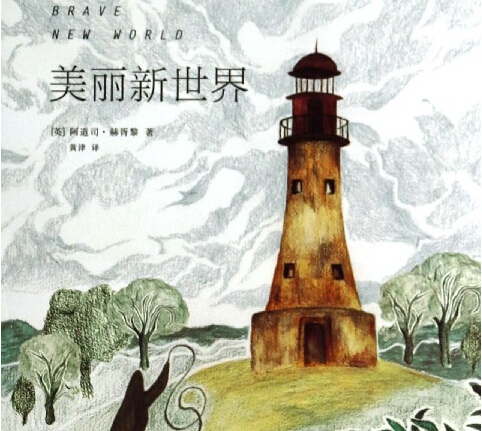He had often seen it before. "When you're bigger," she had said, "you can read it." Well, now he was big enough.
那书他以前常看见。“你长大以后,”她说,“就可以读了。”好了,现在他长大了。
He was proud. "I'm afraid you won't find it very exciting," she said.
他觉得骄傲。“我担心你不会觉得这书能叫你太激动,”她说。
"But it's the only thing I have." She sighed.
“但那是我唯一的东西,”她叹了一口气。
"If only you could see the lovely reading machines we used to have in London!" He began reading.
“你要是能够看见那些可爱的朗读机就好了!我们在伦敦常用的。”他读了起来。
The Chemical and Bacteriological Conditioning of the Embryo.
《胚胎的化学和细菌学条件设置》。

Practical Instructions for Beta Embryo-Store Workers.
《胚胎库比塔人员实用说明书》。
It took him a quarter of an hour to read the title alone.
光是读那标题就花了他一刻钟。
He threw the book on the floor. "Beastly, beastly book!" he said, and began to cry.
他把书扔到了地上。“讨厌,讨厌的书!”他哭了起来。
The boys still sang their horrible song about Linda.
孩子们仍然唱着那支关于琳妲的可怕的歌。
Sometimes, too, they laughed at him for being so ragged.
有时他们又嘲笑他穿得太破烂。
When he tore his clothes, Linda did not know how to mend them.
他的衣裳破了琳妲不知道怎么补。
In the Other Place, she told him, people threw away clothes with holes in them and got new ones.
她告诉他在那另外的地方,衣服有了洞就扔掉,买新的。
"Rags, rags!" the boys used to shout at him.
“破烂儿,破烂儿!孩子们对他喊。
"But I can read," he said to himself, "and they can't. They don't even know what reading is."
“可是我会读书,”他想,“他们不会,连什么是读书都不知道。”
It was fairly easy, if he thought hard enough about the reading, to pretend that he didn't mind when they made fun of him.
他们嘲笑他时,他努力想着读书,就很容易对付了。
He asked Linda to give him the book again.
他可以装着不在乎。于是他又要求琳妲把书给他。
The more the boys pointed and sang, the harder he read. Soon he could read all the words quite well.
孩子们越是唱歌,指指戳戳,他越是用功读书。那些字他很快就读得很好了。
Even the longest. But what did they mean?
就连最长的字也一样。但那是什么意思呢?
He asked Linda; but even when she could answer it didn't seem to make it very clear.
他问琳妲,她一般是答不上来。
And generally she couldn't answer at all.
即使能答得上来,她也解释不清楚。
"What are chemicals?" he would ask.
“什么叫化学药品?”他有时间。
Oh, stuff like magnesium salts, and alcohol for keeping the Deltas and Epsilons small and backward;
哦,比如镁盐,比如保持德尔塔和爱扑塞隆们瘦小落后的酒精;
and calcium carbonate for bones, and all that sort of thing.
比如制造骨头的碳酸钙和诸如此类的东西。
But how do you make chemicals, Linda? Where do they come from?
可是化学药品怎么制造呢,琳妲?化学药品是从哪里来的呢?
Well, I don't know. You get them out of bottles.
我不知道,是从瓶子里取出来的。
And when the bottles are empty, you send up to the Chemical Store for more.
瓶子空了就打发人到药品仓库去要。
It's the Chemical Store people who make them, I suppose.
是药品仓库的人制造的,我估计。
Or else they send to the factory for them.
或者是由他们打发人到工厂去取来的,我不知道。
I don't know. Inever did any chemistry. My job was always with the embryos.
他问她其他问题也都一样。琳妲好像从来就不知道。
It was the same with everything else he asked about. Linda never seemed to know.
我从来没有搞过化学。我一向只搞胚胎。
The old men of the pueblo had much more definite answers.
印第安村的老年人的回答却要确切得多。
The seed of men and all creatures, the seed of the sun and the seed of earth and the seed of the sky —Awonawilona made them all out of the Fog of Increase.
人和一切生物的种子,太阳的种子,大地的种子,天的种子都是阿沃纳微罗那用繁衍神雾创造出来的。
Now the world has four wombs; and he laid the seeds in the lowest of the four wombs.
现在世界有四个子宫,他把种子放进了最低的子宫里。
And gradually the seeds began to grow …
种子渐渐成长……












